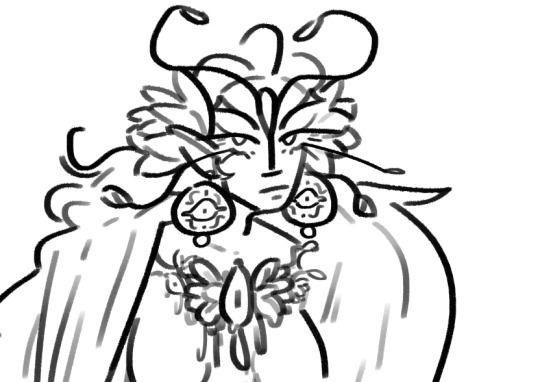#fangyan
Text


tiger painting shirt
#fashion#tiger#pink#shirt#top#blouse#button up#smart#elegant#academia#inspo#inspiration#mukzin#fangyan#jade in the shadow#fangyán#asian fashion#oversized
19 notes
·
View notes
Text
Best Silk Sleepwear for Women 2022

A good night’s sleep is crucial for your physical and mental health. That’s why it’s important to have the right sleepwear.
There are many different types of sleepwear available, but silk is often considered to be the best material for women. Silk is soft, comfortable, and breathable, and it helps to keep you cool and comfortable during the night.
we will take a look at some of the best silk sleepwear for women in 2022. We will also discuss the benefits of silk sleepwear and how to choose the right set for you.
There’s nothing better than slipping into a luxurious piece of silk sleepwear after a long day. Not only is it comfortable and cozy, but it’s also great for your skin.
#cashmere coat#Knitwear Dress#cashmere cardigan#sexy sleepwear for women#sexy sleepwear#silk sleepwear#Fangyan
0 notes
Text
if you need me i'm inventing a new Hot Take viewpoint on the whole tangled debate of "what is a language" versus "what is a dialect" versus "topolect" versus "regiolect" versus "[null prefix] lect" etc etc which is that ACTUALLY the only good and correct way to do the terminology is that high alemannic is a fangyan
#am i making a point here? probably not. is it funny? IT IS TO ME#next time somebody asks me how languages i speak instead of being like 3.5 i really ought to be like COMMIT TO AN OPINION ON#THE TRANSLATION OF FANGYAN. QUICKLY!#languages#dot txt
14 notes
·
View notes
Text

fangyan with the eye crown mark + dajings big ass boa
#My Art#Fall of Taihe#Wu Fangyan#still very much trying to think of how to design her gijinka..... she is prolly the hardest out of the three of them#esp w the eye crown........ the eye crown isnt REALLY a crown it goes around the chest. Like So.#and it also extends around the waist/thighs#she got lotus growing out of her everywhere. esp around where the ec is
3 notes
·
View notes
Text
So the other day I posted some linguistics terms vocab, basic terms that I was curious about. And I looked up “dialect” and my dictionary gave me 方言 fāngyán, which I didn’t really question. Like fine, sure, “local speech,” that makes sense as what we call “dialect” in English.
But I just watched this lecture on YouTube called “How Fangyan became Dialects” by historian Dr. Gina Anne Tam and turns out that’s a very loaded assumption! Because basically there’s a long history of the sort of mismatch(?) between western terms for describing linguistic varieties (languages, dialects, vernaculars, etc etc) and those used in China. I’d definitely heard other Chinese languages such as Cantonese or Hokkien described as dialects, and this mistranslation or misrepresentation of 方言 is a major part of this problem.
The idea of language vs. dialect is a complex one, and these terms in Chinese languages don’t map 1-to-1 onto existing European-language ones. Linguists in the 19th and 20th century struggled with this and often made comparisons to what they knew from Europe, imposing distinctions and hierarchies that didn’t necessarily exist prior. Language and nationalism in Europe during these years is also super interesting and something I’ve read some about, and it makes sense then that westerners would be confused by a country with many forms of speaking when Europe was (and still is?) drawing up borders along linguistic+national+ethnic lines.
The development of nationalism in China through the 20th century led to further changes in the idea of a national language, especially with the promotion of first 國語 in the Republican era and 普通话 under the Communist government.
It’s interesting that what used to be a term for a region’s language can now be used in a hierarchical way to subordinate certain linguistic varieties to others. Dr. Tam mentioned that there was an article that generated controversy years ago that said that since Cantonese was a 方言 that is wasn’t fit to be taught and couldn’t be considered anyone’s 母语 mǔyǔ (mother language), that instead all Chinese people must learn and use 普通话, the national standard. This idea of course coming from the implications that 方言 now has, that it’s “merely” a dialect, that dialects aren’t “full” languages, that they’re inferior or incomplete or whatever.
Dr. Tam had a nicer way of phrasing this, but terminology is so important because these definitions—which may seem inconsequential, like we’re squabbling over minor issues that mean little—influence how we perceive and think, which in turn influences how we interact with the world. If a 方言 is just a dialect, and dialects are lower than languages, and Cantonese is a 方言, that means Cantonese is lesser. That’s a “logical” conclusion one can make, just a syllogism of X is Y, Y is Z, therefore X is Z (Cantonese is a 方言, 方言 is lesser, Cantonese is lesser). But that “logical” conclusion starts from a very very flawed premise, this definition which presupposes a hierarchy that doesn’t really exist linguistically (but then does exist socially and is justified by these “scientific” or “logical” reasons).
All that to say, this was a super interesting lecture (about her book that I might have to read!) and if you have time I would totally recommend giving it a watch. These terms are interesting and complex and nuanced, and knowing more about the history is really enlightening. I’ve been getting into language and identity lately, reading a lot about nationalism and race and the idea of “native speakers.” It feels like, while in other areas we might have made social progress, that language is one area that many people are super unaware of and take for granted their own biases without understanding these power structures and their histories.
Anyways I’d be curious to hear what anyone else has to say on the topic! And definitely if you watch her lecture let me know what you think!
#they covered a lot of other stuff in there too#I’m particularly interested in a topic they brought up regarding translation called a supersign#where basically X and Y terms in two languages aren’t equal but rather through translation create a supersign#two unlike signs are synthesized into a supralinguistic form that contains both of them#idk that was how I understood what they said anyway#I’ll have to read more on that too#the researcher for that is named Lydia Liu#if anyone’s read Babel#I’m willing to put money that the author has eead liu’s work#like the premise of Babel was exactly that#the fusion of unlike but translationally equatable terms to create something new#oof anyways wrote more than I meant to lol#linguistics#mandarin#cantonese#普通话#国语#方言#汉语#中文#广东话#粤语#translation
140 notes
·
View notes
Text
Unleash your inner style icon with the all-new Fangyan Limerence Jacket!
Elevate your wardrobe with this trendy, must-have piece that's perfect for any season. The Limerence Jacket is the ultimate fusion of comfort and fashion, designed to make heads turn. 😍
🍂 Fall in love with its:
✨ Unique Design
✨ Comfortable Fit
✨ Versatile Style
Whether you're dressing it up for a night out or going for a casual chic look, the Fangyan Limerence Jacket has got you covered. 💃🕺
Don't miss out on this fashion statement! Shop now and be ready to slay the fashion game. 💃 iShopMeta.com

#stylegoals#fashionweek#fashionstylist#fashionblogger#online shopping#nft marketplace#nft#iShopMeta#clothing#fashion#fashion tag#fashion inspo
0 notes
Text
视频:李克强总理在深圳讲话,坚持改革开放
这个视频信息量很大 pic.twitter.com/c3K2KGb0WW— fangyan (@fangyan19) August 17, 2022
View On WordPress
0 notes
Link
Ordinary Office Worker, Cheng Fangyan finds a scratch machine. After scratching a card he ends up summoning a goddess who calls him Master and tell him to save the Heavens.
0 notes
Text
I recently found out about the word 'topolect', which essentially means "the way people speak in a certain location" without inherent reference to the status of the manner of speech as either a 'full language' or 'dialect'. It's an interesting concept--I wouldn't call myself a linguist, really, but I've long had a fascination with how the line between 'language' and 'dialect' tends to be so blurry and uncertain even when (or perhaps resulting in how) it tends to spark arguments.
Though originally popularized, insofar as such an obscure word can be considered popular, in the 90s to refer to different varieties of Chinese which are mutually unintelligible but still considered "Chinese", I feel like it has untapped potential for a wider use in reference to, say, Scots or Provençal, where they are clearly distinct enough to be separate languages rather than dialects, but there's also an inherent connection and degree of intelligibility to their more widespread cousins, which "language" fails to capture.
#uhhh linguistics?#linguistics#is it even cool to put serious tags on your posts#topolect#dialect#language#scots#provençal#fangyan#SEO#god i look like a dork
1 note
·
View note
Note
Hello, I hope your family is doing well! I have a question: are there resources on the web for learning mandarin dialects? I've been trying to learn my native dialect (wuhanese) but my mom forgot most of it because she's been in the US for so long...
Hello! Thank you for asking!
Unfortunately, consistent resources for dialects like these are very scarce.
This is where I would encourage you to reach out to family members, their friends, etc, or even making a public post somewhere asking if someone knows how to speak this dialect. You could also try searching around on Instagram. (I know, that sounds kind of random), but there are plenty of Chinese people on Instagram who are teaching Chinese to their followers, and one of them is bound to know something about Wuhanese and would be happy to teach it to you. Overall, surrounding yourself with people who know the dialect and daily reinforcement is the best way to learn.
In terms of western sources, here's what I found, (but they are not consistent programs that you are able to practice/build up on your knowledge):
https://app.memrise.com/course/148833/basic-wuhan-dialect/
https://www.youtube.com/watch?v=bfJ9LrTDvcI
https://www.youtube.com/watch?v=zvjy-MVAW_0
https://www.youtube.com/watch?v=1FZTgtBsQ2M
https://www.theworldofchinese.com/2018/09/fangyan-friday-1-wuhanese/
https://wiki2.org/en/Wuhan_dialect
https://www.froginawell.net/frog/2020/03/the-language-of-wuhan/
In terms of Chinese sources, I will personally look around, but I do suggest looking on BiliBili (which is basically Chinese YouTube - it's available in the US). Type in 武汉话 or 武汉方言 into the search bar, and that might take you somewhere.
I'm really sorry that this is all I can do for you right now, but I'll be sure to come back with an update!
22 notes
·
View notes
Text
Learning Chinese as a Chinese American

This post will be different from most of my other posts. I’m going to be talking about my experience learning Mandarin Chinese as a Chinese American. It seems to me that most of my followers and other learners I follow are not ethnically Chinese, so I want to share my experience.
Disclaimer: I cannot represent all Chinese Americans. I can only speak for myself and my friends and family.
First, I want to briefly highlight some experiences of Chinese Americans when it comes to Mandarin proficiency that I think are often overlooked. Chinese Americans who are looking to learn or improve their Mandarin come from very diverse backgrounds, from relatively proficient to conversational but illiterate to can understand but not speak to a complete beginner. Those who are not complete beginners (have some level of exposure from childhood) can be called heritage learners.
Many Chinese Americans have no knowledge of Mandarin for a variety of reasons. They might have learned a different Chinese language like Shanghainese or Cantonese from their families. They might have parents who don’t share a common Chinese language and thus used English to communicate. They might come from a family that has been in the US for several generations, so everyone is a monolingual English speaker.
Many Chinese Americans are simply not interested in improving their Mandarin or even learning it to begin with. This is obviously not the case for me, but IT IS VALID!!! No one should feel obligated to learn Mandarin.
Many Chinese Americans speak nonstandard varieties of Mandarin or speak Mandarin with strong regional accents that are considered “improper” because they aren’t biaozhun putonghua.
Many Chinese Americans speak Mandarin with a young child’s vocabulary because their language skills slowed when they began using primarily English at school. Also, their skills may regress when they leave home as a young adult and stop having regular contact with the language.
As for me, I am not a heritage speaker because I didn’t grow up speaking Mandarin. However, I do consider Mandarin to be my heritage language because it is the first language of some of my relatives. For various reasons, almost none of my close family members speak a non-Mandarin Chinese language/fangyan anymore, so I’m really only interested in learning Mandarin.
Even though I didn’t grow up speaking Mandarin at home, I started taking extracurricular Chinese classes (aka Chinese school) at a young age. I’m sure other Chinese Americans will agree with me that it’s very easy to go to Chinese school for years and not actually learn that much. I never felt like I learned that much, but now I realize that my years of Chinese school gave me a really strong foundation in pronunciation that I lacked as a non-heritage speaker. I probably would have learned more if I had paid more attention...I guess I was not a very diligent learner as a child. I also forgot a lot between when I stopped going to Chinese school and when I became more serious about learning Chinese in high school/college.
My Chinese school experience is why I’m pretty much useless at giving advice for beginners--I can’t remember learning the basics, and I probably learned them in a way that won’t work for you. For instance, I never formally learned pinyin or tones. I just picked them up “naturally” from my years of classes. I never realized how much effort is needed to learn these basics until I met Chinese learners with different backgrounds.
One really interesting result of my Chinese learning story and family background is that the Chinese I’ve learned is noticeably different from the Chinese my close relatives speak. They use traditional characters and speak with mostly Southern Chinese/Taiwanese accents and vocabulary. But in all my classes, I’ve learned simplified characters and Beijing-centered vocab. To try to correct for this, I’ve been attempting to get better at reading traditional characters and try to avoid using erhua. I haven’t focused as much on learning Southern and Taiwanese vocabulary yet, but I’m hoping to in the future. I honestly have no intention to learn to write traditional characters--I just want to be comfortable enough with them to read and type. I’ve been writing with simplified characters for two thirds of my life, so that ship has sailed.
To sum everything up, I’ve personally found learning Mandarin as a Chinese American to be a really fulfilling process. Sometimes I do get discouraged, but the joys of learning and connecting with my heritage makes it all worth it. My one regret is that I didn’t take Chinese school seriously when I was younger. As a result, I never got to have a meaningful conversation with my grandparents before they passed. I don’t want anyone else to experience this regret I feel. So please, Chinese Americans who are heritage speakers, treasure your language skills.
#chinese american#abc#american born chinese#diaspora#heritage language#heritage speaker#heritage learner#mandarin#chinese#mandarin chinese#chinese language#mandarin language#asian american#aapi#overseas chinese#chinese langblr#mandarin langblr#chinese studyblr#mandarin studyblr#learn chinese#learn mandarin#learning chinese#learning mandarin#study chinese#study mandarin#studying chinese#studying mandarin#chinese learning#chinese mandarin
84 notes
·
View notes
Note
Agksgjdd your tag on not knowing the tones if you didn't grow up speaking your dialect: absolutely true sgjsgjdgd
I grew up learning mainly mandarin because that's the mother tongue available in schools here and I'm pretty sure my parents spoke to me in mandarin as a kid too as a result
Most of my interactions with dialect comes from hearing my parents talk to my grandparents or relatives back in China. But I still didn't speak it much because for me mandarin was similar enough to it that as a child I thought it was more of an accent thing affjsfhs
I ended up speaking mandarin to them and then getting Wuhan Fangyan back so I never got a lot of practice so now I just can't match the tones very well at all :')
Omg the accent thing yeah gfdjskdsd I used to think 四邑 dialects were accented Cantonese... I wish you luck in learning the tones again... 加油 :')
And oh my god, my parents never spoke any Toishanese or Enping dialect to me at all because apparently they began speaking Cantonese more as they grew up and just.. fell out of the habit. And they never taught me any because they thought it wasn't useful enough to learn and raising a bilingual baby was already hard enough. I didn't even know Cantonese wasn't there native native dialect until like... two years ago??? Thinking about how dialects are lost as generations go on makes me emotional...
#asks#anonymous#i would give you a dedicated anon tag#but i think 'nb chinese diaspora anon' would describe a good portion of the people following me here GFHDJSDSJD#also sorta unrelated but related but. the fucking anger i feel when ppl discount my parent's language skills when*#*they each know a minimum of four dialects each. in addition to learning english. fuck.#and aaaaaaaa i wanna find ppl to speak cantonese with bc i feel like if i dont constantly speak it ill lose it
17 notes
·
View notes
Text
What are the best formal cashmere cardigan styles for women?

Women’s cashmere cardigans come in a variety of styles, from the most formal and elegant to more relaxed and comfortable designs. There is a style for every woman, depending on her individual taste and fashion sense.
In this article, we will explore some of the most popular formal cashmere cardigan styles for women. We will also provide tips on how to wear them and suggestions on where to buy them.
Formal Cashmere Cardigan Styles
Cashmere cardigans can be dressed up or down to create a variety of formal styles. The following are just a few examples:
#cashmere coat#Knitwear Dress#cashmere cardigan#sexy sleepwear for women#sexy sleepwear#silk sleepwear#fangyan
0 notes
Note
im very excited for the gay! The fic's been pretty, amazingly, extremely gay so I dont know how you'll one-up yourself but I cant wait to read it!!
here’s a preview just for you! *kisses
(below the cut to avoid spoilers)
After the meal, he strips off his robes and falls into bed without bothering to wash, holding out his arms for his son when Xiao-Yu crawls in behind him; and then he slips straight into a blissful sleep, hardly even stirring when Lan Zhan comes in and lies down at his side.
“It is only me, xingan,” he hears his zhiji whisper, right before Lan Zhan leans over and kisses the apples of his cheeks. “Rest. Your Lan Zhan is here.”
So Wei Wuxian does, heaving a comfortable sigh as his friend’s steady arm drapes itself over his waist, and dreams only good dreams until he wakes up a quarter-past shen shi to find Lan Zhan gone from their bed, while Xiao-Yu seems to have wriggled up onto Wei Wuxian’s stomach for a softer place to sleep.
“Lan Zhan?” he calls groggily, sitting up and rubbing his eyes. He can hear the sound of splashing water from the tiled washroom, followed by his friend’s low voice humming a Suzhou lullaby: one that Lan Zhan often sings to Xiao-Yu, to Wei Wuxian’s boundless delight. He never heard Lan Zhan speak in his region’s fangyan even once before the night they first shared a bed at Lotus Pier, and the timber of it was so sweet and rich that Wei Wuxian had to fight the impulse to sing back in the jianghuai dialect--though Lan Zhan would have understood very little of it, no matter how tenderly Wei Wuxian might have attempted to make his happiness known.
Xiao-Yu will grow up speaking them both, he realizes, lifting the sleepy baby onto his hip and going out to the receiving room to find his jewelry: namely, the lotus comb Lan Zhan bought him in the spring, since Huaisang forbade him from wearing anything made of silver to the conference banquet.
25 notes
·
View notes
Note
🥛hiii could you perhaps expand on Dajing *holds my chin in my claws cutely* maybe any fun little mannerisms or speech patterns or etc that he has? (he's gorgeous btw love when a pretty man goes Thru Some Shit and it rly seems like he is just living that constantly<3)
YES!!!! YES DAJING!!!!!!!! MY SPECIAL GIRL!!!!!
so. Dajing wasnt like a sect heir but he Was predy high up in his sect before it got quite literally sniped. His parents were a LOT older, so they were basically becoming elder scholars of the sect before he was even 10. But bc of this dajing has. Really formal ways of speaking. The type to use words you've never heard before bc he doesn't realize there's a simpler way to phrase something. He was kept around alllll the scholars almost 24/7 bc thats jst what his momma ws doing! And yeah he had like a milkmaid and the like bt also he threw a fit anytime his mom wasnt within his sight for actual years. He still got antsy even as a teenager when he cldnt find her.
Anyways
Despite how formal he speaks he takes every opportunity to tease people. Ppl like instinctually take everything he says very seriously and he takes advantage of jt when he Really shouldn't, but its also always for fun and never for any malicious reasons. He did this with Fangyan/the princess and its basically how he charmed her bc she thought it was funny this Big Number 1 Cultivator was a little silly guy.
Its how he pisses off xinkang 90% of the time though
As for mannerisms he has like little habits that he gains specifically after he enters a relationship with fangyan (and eventually xinkang) . . . . . Hes a whole head taller than both of them. So he started resting his chin/cheek on top of Fangyans head Mostly to mess with her but then it actually turned out to be comfortable so he just kept doing it. Then it went on to xinkang. Who tried to knock him out the first time he did it but he accepts his fate at some point. He does this to ruyang too heehee
He also just clings to ppl. Which like *motions to the bit about his mom* is probably obvious but dajing likes holding onto someone in Some way. Fangyan he would hold her waist/hug her from behind or just hold onto her sleeve when in public, xinkang he would hold onto his little ribbons or have an arm over his shoulders, ruyang he would hold her by the scruff of her neck. LMFAO. But hes really affectionate so he had to be holding sm1 in some way. This fact made his seclusion all the more miserable though.
i love dajing sooo much and it is 100% bc i gave him the hxm faceclaim but i looove him my special viciously miserable man . . . . . Rlly looking forward to writing how ruyang responds to receiving a new set of parents given she didnt learn about fangyan/xinkang until jinyu started fucking with dajing (so quite literally in the current timeline, has only known about them for a few months). Shes gonna have so many parents
Also look at this img of hxm being carried. xinkang/dajing core

#Asks#Dragonji#HIII JAE#also this will be funny and i swear to god it wasnt planned bc dajing wasnt originally supposed to be in a polycule#but xinkang has zhai tl faceclaim. <- trying to avoid getting jn his tag LMFAO but#it wasnt intentional i was just slapping actors to dragons but then i started developing dajings shit and it was like Fucking. Damn It#anyways idk whats going on in the hxm image but theres also a video of him happily following the guy carrying him on a bike
3 notes
·
View notes
Text
the weirdest part of learning japanese as someone who’s studied mandarin for several years is just bullshitting a word reading based on your vague feeling of the sound rules for how chinese goes to onyomi and being right when you shouldn’t be:
家庭 --> in chinese: jiating --> hmm well alveopalatals like ‘jia’ usually go to velars so maybe ‘ka’? and ng in chinese goes to a vowel so maybe ‘tei’ --> katei --> somehow this is actually correct
or reverse engineering a chinese word with onyomi readings and somehow this is the real actual japanese word:
friend/japanese classmate: wait what’s ‘dialect’ in japanese?
me: idk
friend: well what is it in chinese?
me: fangyan ( 方言)
friend: so what would that be in onyomi
me: idk 方 probably goes to ‘hou’ and 言 goes to ‘gen’ i think
friend: wait, isn’t the japanese word ‘hougen’?
and suddenly japanese onyomi becomes this weird historical phonology conspiracy

86 notes
·
View notes